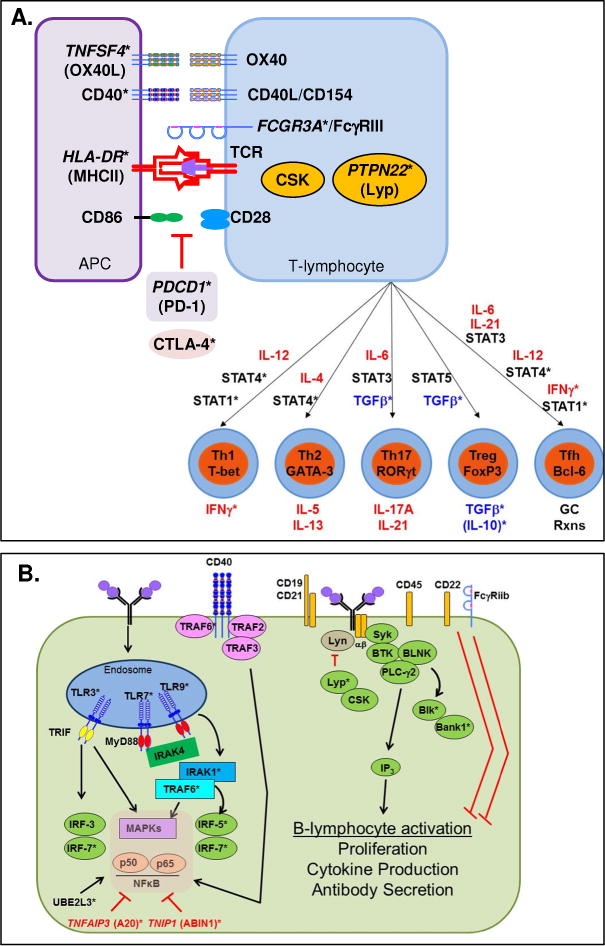Figure 2.

Adaptive immunity processes contribute to lupus nephritis. A. T-lymphocyte activation. Nuclear antigens are phagocytosed, processed, and presented in the context of MHC by APC, which then interacts with the TCR on T-lymphocytes and activates downstream signaling events (Signal 1). Co-stimulatory molecules from the CD28 and TNFR families engage to prevent anergy and amplify the MHCII/TCR response in CD4 T-helper cells (Signal 2). Downstream signals lead to the secretion of cytokines (Signal 3), which then interact with transcriptional regulators to drive T-lymphocyte differentiation pathways. B. B-lymphocyte activation. Nuclear antigens stimulate the BCR, activating the BCR signaling complex that results in downstream signaling events. Co-stimulatory molecules, including CD40 and TLRs, synergize with the BCR to amplify B-lymphocyte activation.
*Genes/molecules with genetic variants associated with lupus nephritis
